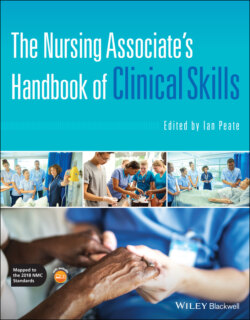Читать книгу The Nursing Associate's Handbook of Clinical Skills - Группа авторов - Страница 52
Blue Flag Relationships
ОглавлениеCase study
A woman visits the local centre of excellence for cancer treatment. In the outpatient department, she sees the same nursing team when she visits for regular chemotherapy treatment.
‘All of the staff are warm and welcoming; they want to make you feel the best you can in a difficult situation. One staff member “goes the extra mile” if you know what I mean. I really like her; she makes me feel happy to see her, she listens intently and recognises when I am extra anxious. Once she took time out to introduce me to a volunteer makeup and style therapist, I had told her that I was anxious about an upcoming family wedding. She is knowledgeable and highly skilled in her work but is honest enough to say if she is unsure of anything that I ask’.
At this point, you might want to take a step sideways and reflect on what aspects you would want to see in a healthcare worker who is supporting you through a vulnerable health episode. Perhaps, many of the aspects highlighted in Figure 3.1 would have come into your mind: a sense of caring, a genuine interest in you, someone who is respectful and communicates well, someone who makes you feel like an individual and someone who feels that the time with you is as important as anything else that might be going on. Similar skills occur in several human relationships, for example, mentor–mentee, teacher–learner, doctor–patient and so on.
